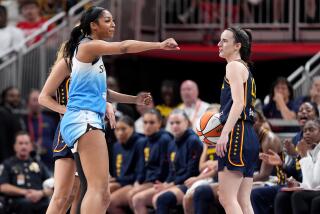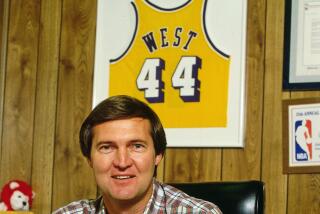Simply Put, the Flyers’ Clarke Is a Disaster
May 19, 1974. A flawless spring day in Philadelphia. A 12-year-old boy sits beneath a tree in a suburban park, a transistor radio glued to his ear. His parents are playing softball. The sky is electric blue. A warm breeze blows through the trees. But he is oblivious. It might as well be snowing.
Some miles away, his Philadelphia Flyers lead the big bad Boston Bruins, 1-0, late in Game 6 of the Stanley Cup finals. Bobby Clarke, his hero, is suddenly on a breakaway for the Flyers. Bobby Orr of Boston intercepts him and tackles him, putting the Flyers on a power play in the dying minutes of the game. The Cup is almost home.
The final seconds tick past and the sweet words finally come from the radio: “Ladies and gentlemen, the Flyers are going to win the Stanley Cup! [Pause] The Flyers have won the Stanley Cup! The Flyers have won the Stanley Cup!”
The boy leaps to his feet, screaming, just like the announcer. Car horns are suddenly honking all over the city. The streets are mobbed. Strangers embrace.
“My God,” the boy’s mother says during the ride home, “it’s like the end of World War II.”
The after-school street hockey game draws a bigger-than-usual crowd the next day. Everyone wants to grow up to be Bobby Clarke.
In time, the boy grows up to be a man.
His hero is still a child.
Bob Clarke (like Bob Knight, no one calls him “Bobby” anymore) is an immature, vindictive, spoilsport. All the other “Broad Street Bullies” have retired. Not Clarke. And he proved last week to be just as vicious in his current role as Philadelphia’s general manager as he was as a player.
Clarke should have done the right thing and traded Eric Lindros before the March 13 deadline. He should have made the move to better his club. He should have made the move to better the league.
But Clarke let his feud with Lindros and his family get in the way of doing the honorable thing and trading the rights to the unsigned restricted free agent to another team.
As a player, Clarke was fearless. He never let an opponent get the best of him. He failed, to be sure. But he always seemed to rebound, to make up for his losses with tenacity.
As an executive, Clarke has been an utter disaster. One suspects that the only reason he has kept his job is because he was a Stanley Cup hero. One also suspects that Clarke spent too many seasons playing without a helmet.
The Lindros matter is only the latest in a string of embarrassing moments for Clarke.
Earlier this season, he told a Canadian television interviewer that former coach Roger Neilson went “goofy on us,” after taking a leave of absence to fight cancer last season.
“We didn’t tell him to get cancer,” Clarke said. “It’s too bad that he did. We feel sorry for him, but then he went goofy on us.”
Clarke used that as an excuse for firing Neilson, replacing him with Craig Ramsay.
Well, Ramsay didn’t last past December, when Clarke sacked him and hired Bill Barber.
All the while, Clarke stuck to his hard-line negotiating stance with Lindros and managed to make time to utter a few unsympathetic comments about Lindros’ history of concussions.
Granted, it can’t be easy dealing with Lindros, whose family has long been held up in Canada as the worst example of “hockey parents.”
Remember, it was Lindros who refused to play for the Quebec Nordiques when they drafted him in 1991 and forced the team to trade him to the Flyers a year later.
The Flyers have reached the Stanley Cup finals only once with Lindros, falling to the Detroit Red Wings in a listless four-game sweep that cost Terry Murray his job as coach in 1997.
But the bottom line is, if Clarke has no use for Lindros, then he should have traded him.
Keeping him under lock and key can only be viewed as vindictive and mean-spirited.
AND NOW, A DIFFERING OPINION
Brian Burke, general manager of the Vancouver Canucks, was one of five hockey insiders recently asked for their views on the Lindros-Clarke stalemate by a Philadelphia newspaper. Burke was the only one willing to be named in print, however.
All five were of the opinion that Lindros was getting bad advice and should have accepted Clarke’s $8.5-million qualifying offer last summer.
“Eric’s strategy here was wrong,” Burke said. “He underestimated the resolve of the Flyers. I don’t think ‘Clarkie’ [didn’t trade him] for vindictive reasons. ‘Clarkie’ told us [during the general managers’ meetings two weeks ago] he’d move him for the right price.”
The St. Louis Blues and the Toronto Maple Leafs expressed interest in Lindros, but Clarke turned down their offers. St. Louis had offered veteran center Pierre Turgeon. Toronto had offered a package of young players, prospects and draft picks.
POWER TO THE LIGHTNING
Trading for and signing goalie Nikolai Khabibulin was a shrewd move by the beleaguered Tampa Bay Lightning, which has pulled off precious few shrewd moves in its nine-season history.
Khabibulin sat out nearly two full seasons after turning down the Phoenix Coyotes’ $3-million-per-season offer in the summer of 1999.
Tampa Bay will pay him roughly $14.75 million over the next three seasons. He will earn a $1-million bonus each time the Lightning makes the playoffs. Plus, if the team picks up an option for a fourth season, the deal could be worth as much as $22.25 million.
Khabibulin, who played last season for the Ice Dogs, worked out for 40 minutes with his new teammates Sunday at the Ice Palace. He hopes to play in a couple of games before the end of the season.
“I’m pretty tired, but it felt great,” he told the St. Petersburg Times. “It was a good feeling, a good tired.”
POWERLESS IN SILICON VALLEY
If the San Jose Sharks continue on with their punchless power play, they could be in serious trouble down the stretch. After going 1-7-1-2 in their last 11 games, their stranglehold on a playoff spot appears to be slipping.
Part of the problem is that their power play has been useless, clicking on only eight of 66 chances during the 11-game slide. The Shark power play is scoreless on its last 19 chances.
“We’ve got seven, eight guys playing like teddy bears when we need grizzly bears,” Coach Darryl Sutter said of his team after a 6-4 loss Sunday to the Red Wings.
More to Read
Go beyond the scoreboard
Get the latest on L.A.'s teams in the daily Sports Report newsletter.
You may occasionally receive promotional content from the Los Angeles Times.






